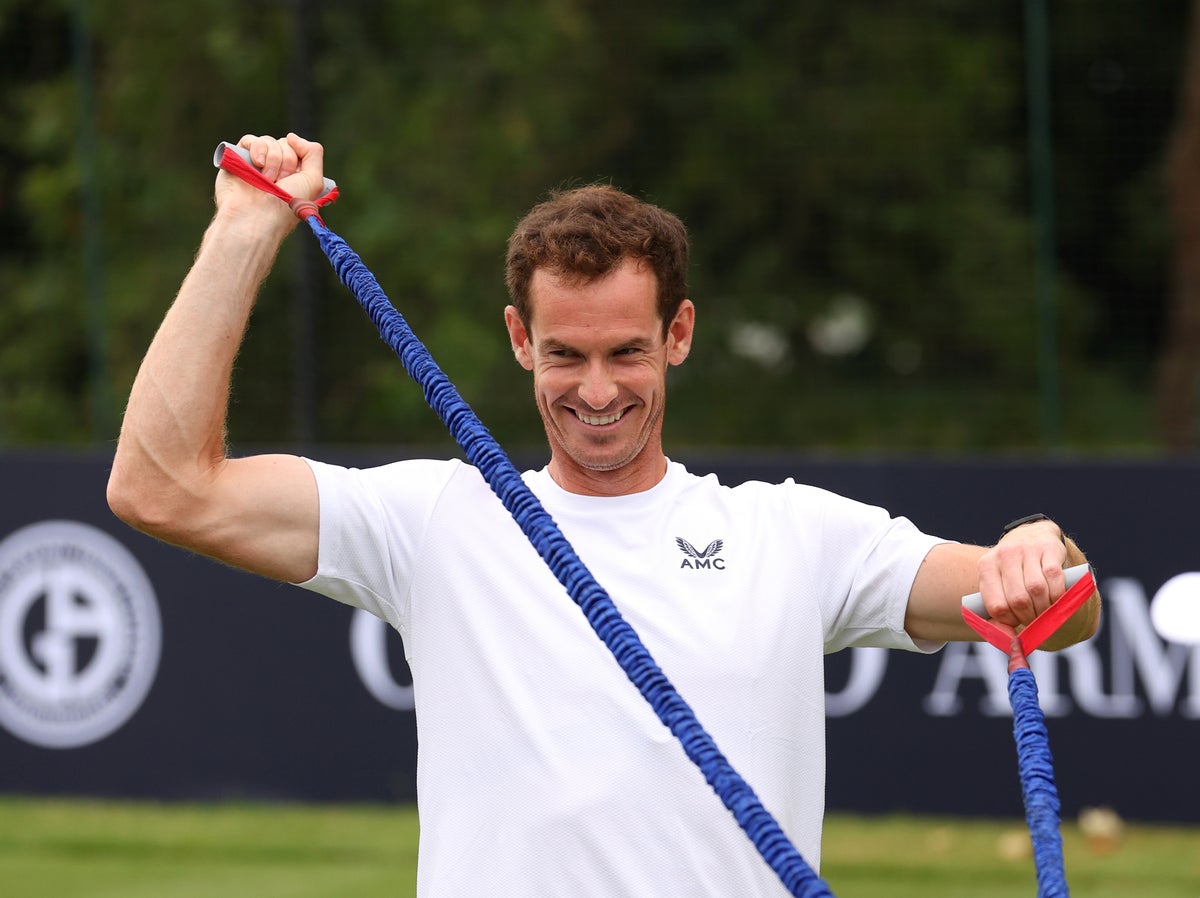
Ten years: who knows where they went. Even now, watching back Andy Murray’s victory in the 2013 Wimbledon final manages to tie a knot in your stomach. The pressure and weight of history, climaxing in that tortuous final game, feel just as overwhelming, right until that last shot from Novak Djokovic drifts long in the haze of Centre Court. That winning moment - “the waiting is over!” - still raises goosebumps on your arm.
The decade anniversary of Murray’s defining moment, and arguably the greatest individual triumph in British sporting history, naturally brings time for reflection: a celebration of how an awkward, gangly outsider who struggled to be fully embraced by the public, persevered through heartbreak and expectation to become a much-loved champion, a player universally respected for his values and commitment to equality and fairness as much as his determination to end Britain’s 77-year wait for a men’s singles winner.
Handily, you can read all of this in the many tributes that followed Murray’s apparent retirement announcement at the Australian Open four years ago - few others have been allowed a look behind the curtain of a sporting obituary that has yet to be fully written, and Murray’s is glowing. The former world No 1, of course, elected to undergo career-saving hip resurfacing surgery. He refused to quit, and there are many who take as much inspiration from the past five years than his arduous quest to win Wimbledon, if not more.
A decade on from his historic title at the All England Club, Murray continues to stand as the tournament’s greatest appeal: the father-of-four who brings the reassuring presence of Wimbledon’s dad, yet still with the ambition and belief that he can beat most of the game’s top players on SW19’s pristine grass-courts. Friday’s draw did indeed hand Murray a potential meeting with one of the tournament’s top seeds in the opening rounds, in the shape of Stefanos Tsitsipas, but Murray will have reason to believe that he can pass that test.
The two-time champion’s build-up to Wimbledon has been done in Murray’s own way, favouring Challenger events in Britain rather than the higher rankings points available on the ATP Tour. While Djokovic was winning last month’s French Open, becoming the first male player to win 23 grand slam titles, Murray was battling away in the final of the Surbiton Trophy - a stratosphere away from the prestige of Roland Garros and the tennis history Djokovic had created in Paris. In its own way, it was fitting.
After winning the title in Surbiton, Murray headed straight to his next tournament in Nottingham when he received a text from his wife Kim: “‘I’m just watching Novak on the news,” it read, “and I’m so proud that you’re still grinding it out in Challengers and still working as hard as you know you have ever done.” Murray admitted he might have compared himself with Djokovic when he was younger, and the diverging paths their careers took post-2016. “Whether I win another grand slam or winning Challengers is the peak for me now, I’m okay with that because I’m doing what I love to do,” Murray reflected.
Andy Murray celebrates his first Wimbledon crown in 2013— (Getty Images)
In a sporting landscape that is driven by the pursuit of money no matter its source, Murray’s humility and thorough decency continues to stand out. It came up again this week as Murray was asked to comment on a controversial poster of former champions Wimbledon had commissioned before the tournament - Murray’s brother and uncle had criticised the exclusion of the only British man to win the Championships since the 1930s. “It was a disaster,” Murray said, but he wasn’t talking about himself. Instead, Murray highlighted the lack of prominence given to female players. “Me not being on it is certainly not a problem,” he added.
Murray has always had that awareness. It is one of his greatest qualities, whether correcting reporters when achievements of female players have been overlooked, or in his groundbreaking hiring of a female coach in Amelie Mauresmo after he won Wimbledon. It was a side to him that grew from his first title at the All England Club. He carried it well then, it’s an even more comfortable fit at 36, with his children now at the age where they can all come to his matches for the first time.
Andy Murray aims to roll back the years at Wimbledon 10 years after his greatest moment— (Getty Images)
Murray and the image of the family man has been evident during this grass-court campaign and at the Nottingham Open, when they appeared in the crowd to surprise him on Father’s Day. According to Murray, they did not show much interest even when they did get the chance to watch, and he told the BBC he had been heckled by his three-year-old son, who shouted “rubbish, rubbish!” whenever Murray hit the net. They may not be invited onto Centre Court on Tuesday, even if the tournament rules allowed it, which they don’t.
Which is a shame, particularly in this year and at a Wimbledon that will bring a celebration of Murray: of what he achieved for us, and of the person and player he is. Coming back was for him, it still is, but ten years on from his greatest day Murray has never felt more like our champion.







